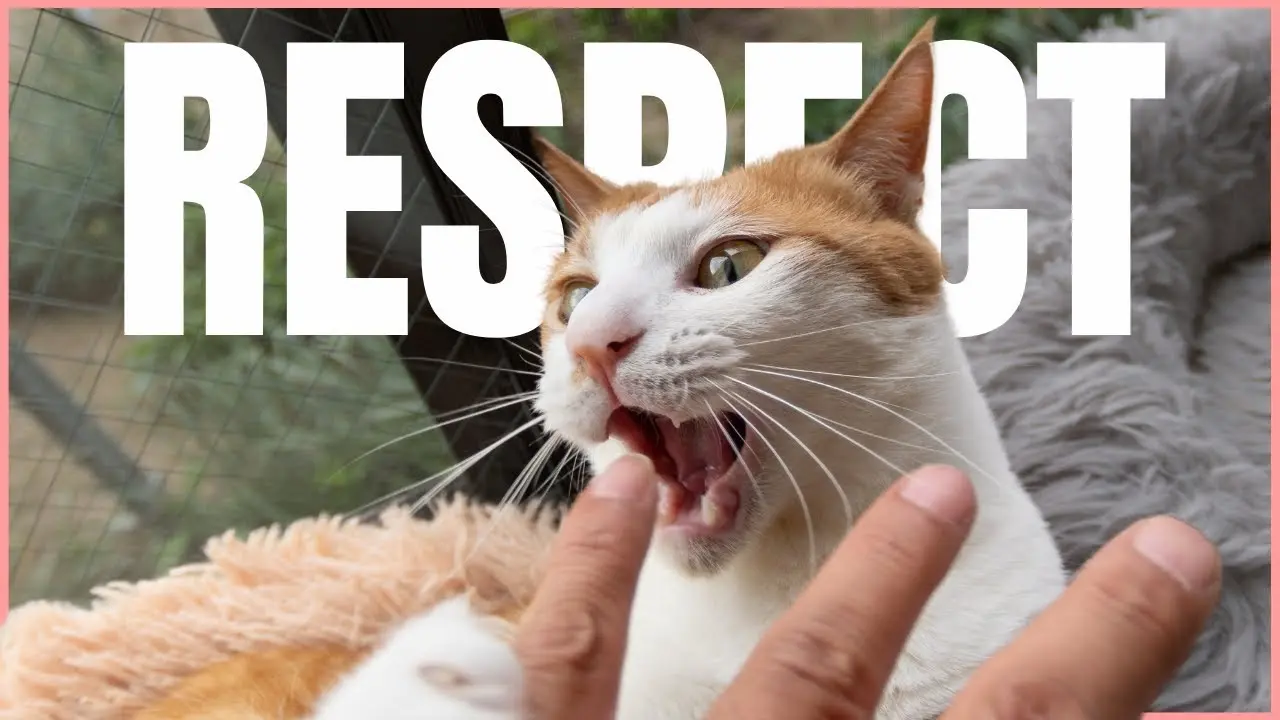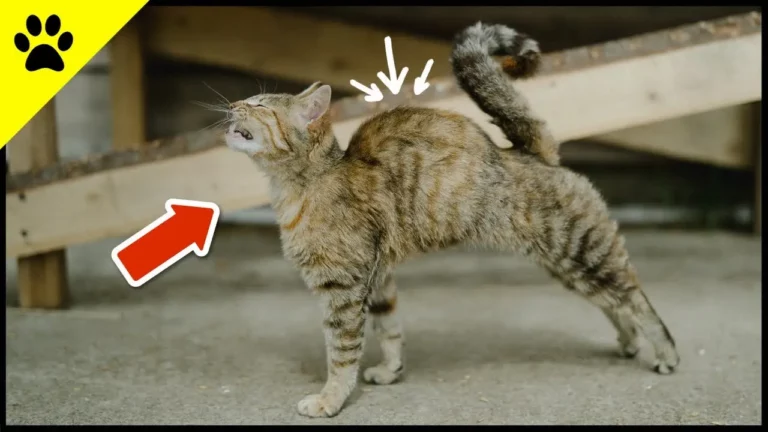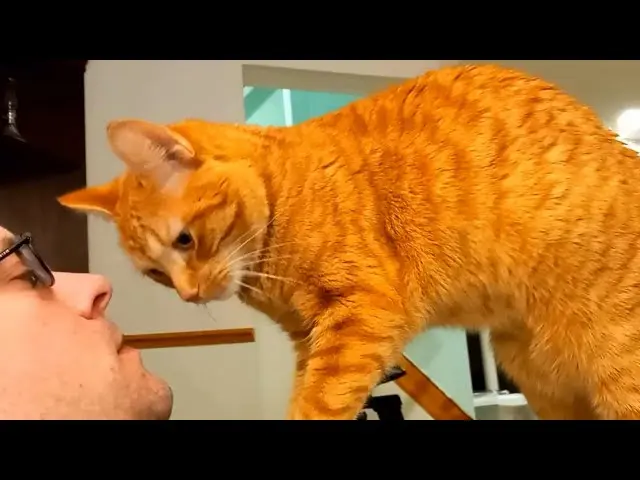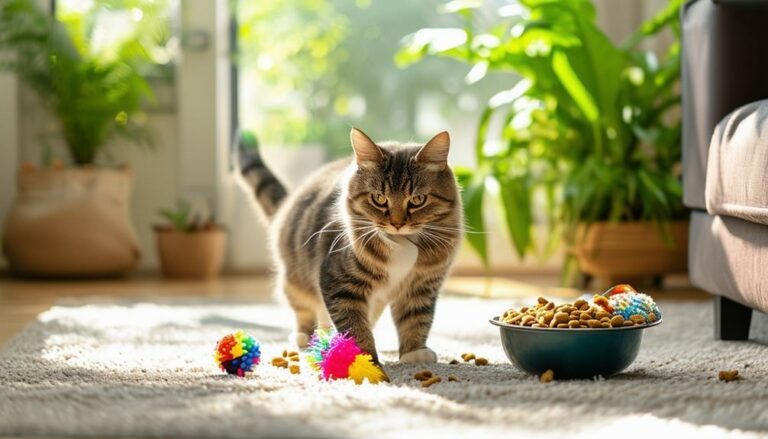6 Signs Your Cat No Longer Respects You
Has your
When a
These behaviors often indicate deeper issues such as changes in their environment, discomfort, or health problems.
Ignoring Commands
One clear sign your
If your
Cats are known for their independence, but they also form bonds and routines with their human companions. When they begin disregarding those routines, it indicates a shift in their perception of you.
To address this, observe any changes in your behavior or environment that might’ve triggered this response.
Have you been spending less time with your
Consistency is key in regaining their respect. Start by reinforcing commands with positive reinforcement, like treats or affection, to remind your
Adjust your approach if necessary. Sometimes, a gentle but firm tone can make a difference.
Ensure you’re giving clear and consistent commands, and avoid any actions that might confuse or stress your
Avoiding Interaction
When your
This behavior can manifest in several ways, such as your
Cats are naturally social creatures, and if they suddenly start distancing themselves, it suggests a change in their comfort level.
This could be due to a recent negative experience, a change in their environment, or even a shift in your behavior towards them.
It’s crucial to remember that cats need time to feel safe and secure, so creating a calm and predictable environment can help.
To rebuild your relationship, try offering treats, engaging in gentle play, or simply sitting quietly near them. Give your
Patience and consistency are key in regaining their trust and respect. By understanding and addressing the reasons behind their avoidance, you can foster a stronger, more affectionate bond with your furry companion.
Excessive Scratching
If your
When they scratch excessively, it might indicate they’re trying to reassert control in their environment, possibly due to changes or perceived threats.
You should observe the context in which the scratching occurs.
Is it happening more when you’re around, or after changes in your household, like new furniture or guests?
Identifying triggers can help you address the root cause.
Providing alternative scratching posts and making sure they’re placed in areas your
Also, maintaining a consistent routine can ease your
Cats thrive on predictability, and disruptions can make them feel insecure. Interactive playtime can also help.
It not only strengthens your bond but also provides mental and physical stimulation, reducing stress-related behaviors.
Lastly, ensure your
If excessive scratching continues despite these efforts, consulting a vet or a
Refusing to Eat
Observing your
Cats are creatures of habit, and a sudden change in their eating behavior often reflects discomfort or displeasure.
Before jumping to conclusions, make sure there’s no underlying health issue. A visit to the vet can help rule out medical problems.
However, if your
Reflect on recent changes in your home, such as new furniture, visitors, or alterations in your daily routine, which might be unsettling your furry companion.
Additionally, consider your interactions with your
Have you been less attentive or more demanding? Cats appreciate respect and consistency.
Ensure you’re maintaining a stable and comfortable environment, providing affection on their terms.
Offering a variety of foods and ensuring their feeding area is calm and clean can also help. Addressing these aspects can restore your
Aggressive Behavior
Aggressive behavior in your
Cats may act out aggressively when they feel threatened, stressed, or unwell. However, consistent aggression aimed at you might indicate a deeper issue related to your bond.
To address this, first, evaluate any recent changes in your home environment. Have you introduced new pets, rearranged furniture, or changed your routine drastically? Such changes can unsettle your
Spend more quality time with your
Another critical step is to review how you interact with your
Are you respecting their boundaries? Cats need their space and may lash out if they feel cornered or overwhelmed.
Pay attention to their body language; a twitching tail or flattened ears often signal discomfort.
If aggression persists, consulting a veterinarian or a pet behaviorist can help. They can rule out medical issues and offer strategies to rebuild trust.
Disregarding Litter Box
Ignoring the litter box is another strong indicator that your
When your cat companion starts using other parts of your home as their bathroom, it’s a clear sign something’s amiss.
Cats are naturally clean animals, so if yours is intentionally avoiding their litter box, it might be a way of showing displeasure or disrespect.
One possible reason could be that they’re unhappy with the cleanliness of their litter box. If you’re not keeping it clean enough, your
Alternatively, changes in the household, such as new pets or rearranged furniture, could stress your
Your
If health issues aren’t the cause, consider examining your relationship with your
Addressing these concerns can help restore respect and harmony in your home.
Conclusion
If your
Focus on positive reinforcement, create a calm environment, and don’t hesitate to consult a professional if needed.
By understanding the reasons behind your
Remember, your efforts can make a significant difference in nurturing a respectful and loving bond with your






